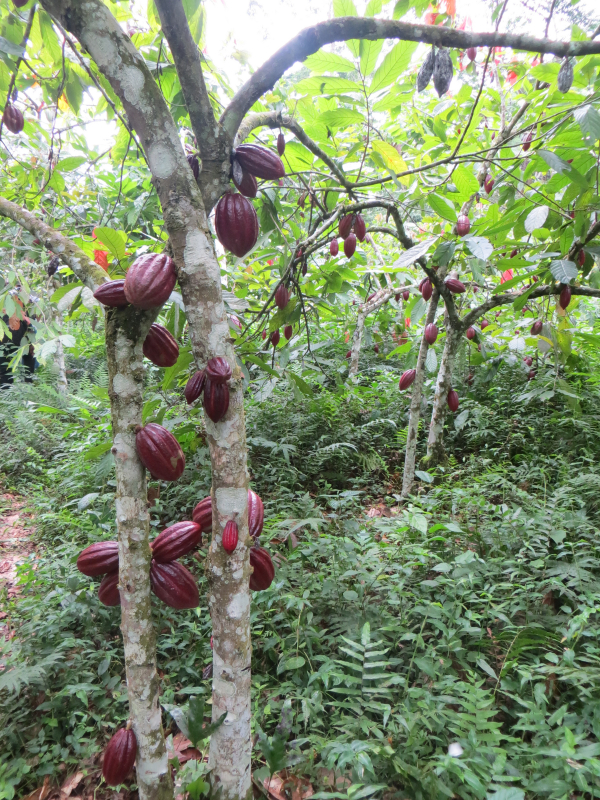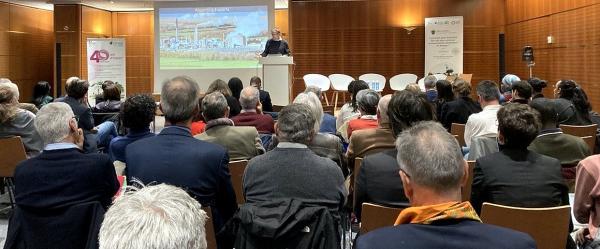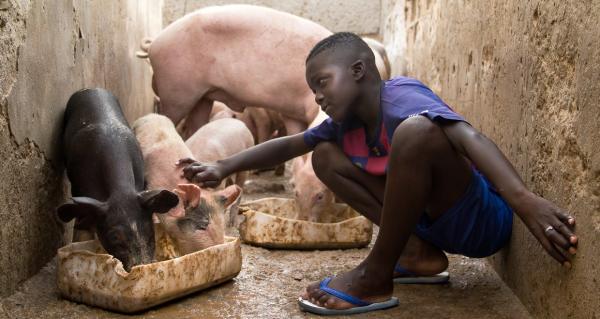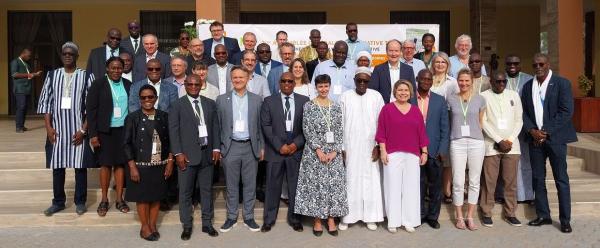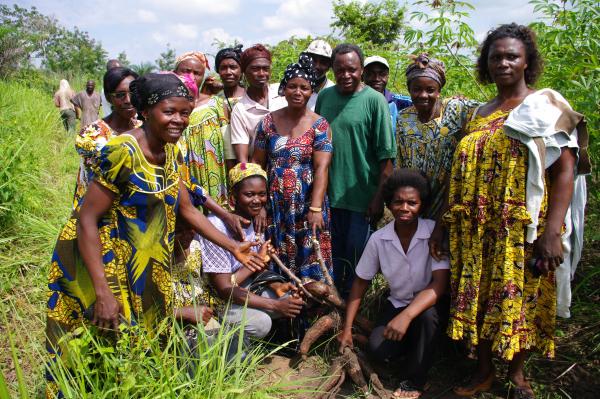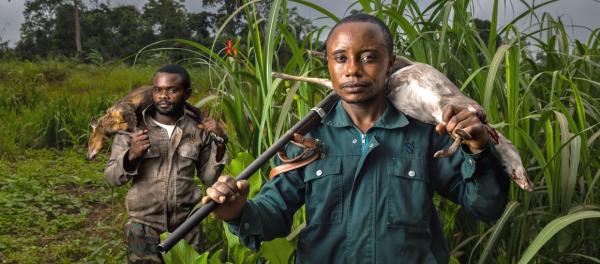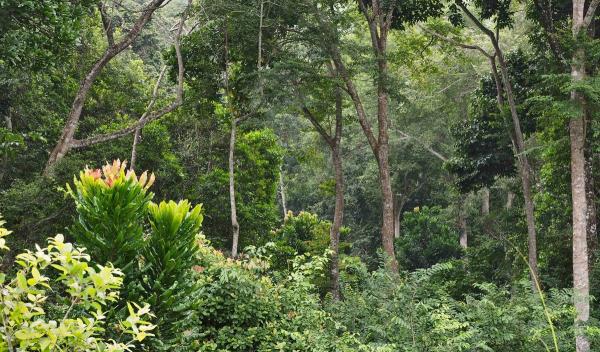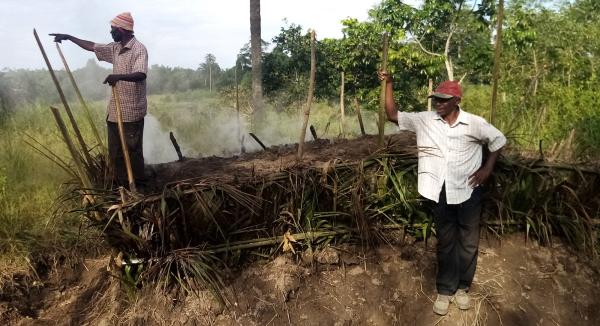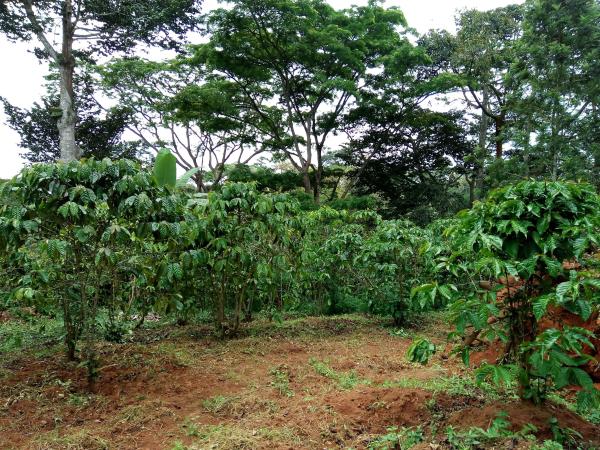Event 7 March 2024
- Home
- Worldwide
- Our regional offices
- Central Africa

Central Africa
Building sustainable production systems based on agroecology and agroforestry
Despite their substantial agricultural potential, the economies of the countries of Central Africa largely centre on producing and exporting extractive commodities (oil, ores, wood, etc.). As a result, agricultural development is under-funded, poverty levels are high, and food security is not guaranteed. Moreover, insecurity – due to conflicts – and a lack of good governance hamper agricultural development, productivity, which remains mediocre, and rational natural resource management, particularly as regards forests. Food and nutrition security, the latter of which is a growing problem in urban areas, is a priority. Achieving that security means building sustainable production systems based on the principles of agroecology, such as agroforestry systems. Those systems must also be inclusive, using territories as a lever for development, and encompass the processing and promotion of food and commercial products. The best way of tackling the priority issue of sustainable forest management, and the corresponding biodiversity, is to adopt an integrated approach to plant, animal and ecosystem health. Training and capacity building are also a major issue in their own right.
CIRAD's Regional Office for Central Africa is based in Yaoundé, Cameroon. It currently has staff members in three countries in the region: Cameroon, Congo and Gabon. Its teams are working on some twenty research and development projects, in collaboration with national institutions (CNRA, universities, ministries, private entities, etc.) and international research centres (CGIAR).
Map
CIRAD covers eight countries and is involved in around twenty research and development projects in the region, plus two platforms in partnership (dPs). The main projects are shown on the map. The dots show the countries in which CIRAD and its partners work. They do not show specific sites.
Key figures
- 14 expatriate researchers
- 2 platforms in partnership
- 120 missions per year
- 20 PhD students supervised
- 30 to 40 Masters students supervised
Main research fields
- Integrated management of forest and wildlife resources in the Congo Basin.
- Promotion of timber sectors of legal origin; Wood energy saving.
- Improvement and diversity of tree crop-based agroforestry systems: cocoa, coffee, fruit trees, etc.
- Performance and agoecological development of the main agroindustrial value chains: banana, coffee, cotton, cassava, oil palm, etc.
- Innovation for agricultural and food development; geographical indications.
- Epidemiosurveillance of animals, zoonotic disease control.
- Public policy, support of advisory services and agricultural extension.
Platforms in partnership
- Forests of Central Africa (dP FAC)
How can we improve polices, strategies and modes of intervention on every level so as to ensure the long-term preservation of the Congo Basin forests, the food and health security of the people who derive a living from them, and improved living standards? - Agroforestry Systems in Central Africa (dP Agroforesterie Cameroun)
In the current situation of growing pressure on natural resources in humid tropical zones, complex agroforestry systems, which combine a range of production activities and environmental services and production functions, could help to improve living conditions for local people and to preserve resources in the long term.
A new big project for agroecologicals transitions in Central and Eastern Africa
The new big project Driving agroecological transitions in the humid tropics of Central and Eastern Africa through traNsdisciplinary Agroecology Living LabS has begun in Cameroun and Democratic Republic Of Congo.
Read more : CANALLS Project, European Commission's website
Operating countries
Teaching and training
CIRAD contributes to training through research via its two dPs in the region, and our researchers supervise around ten students per year (Masters and PhDs). They also participate in teaching operations at the University of Yaoundé 1.
See also: Teaching and trainingScientific publications
See all publicationsContact
CIRAD Regional Office for Central Africa,
Rue J. Elig Essono Balla,
BP 2572, Yaoundé,
Cameroon
Tel.: + 237 22 21 25 41
Fax: + 237 22 20 29 69
























